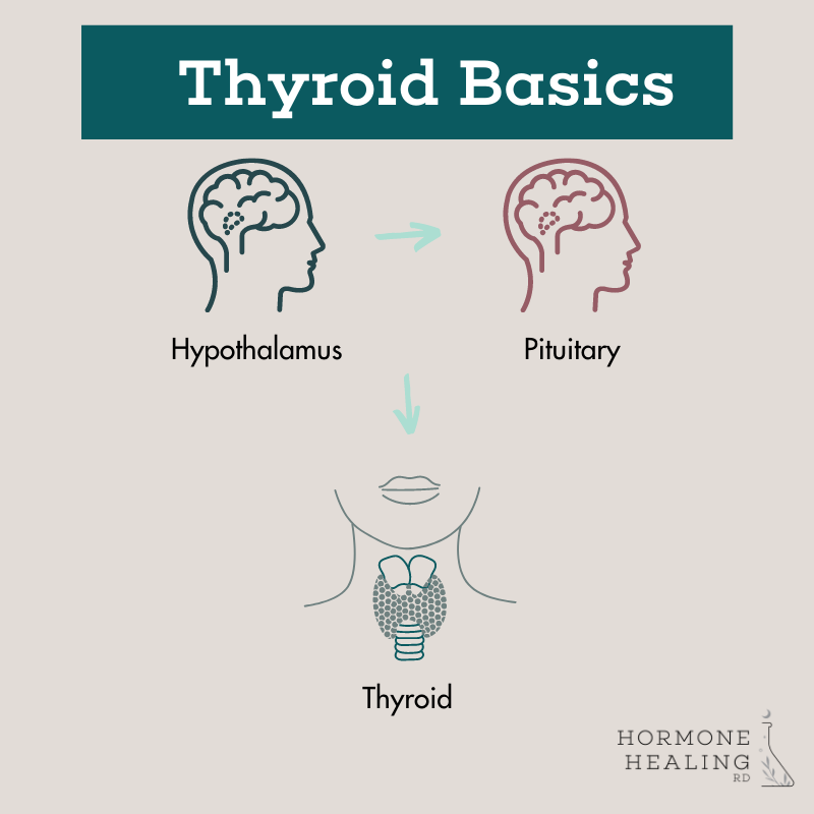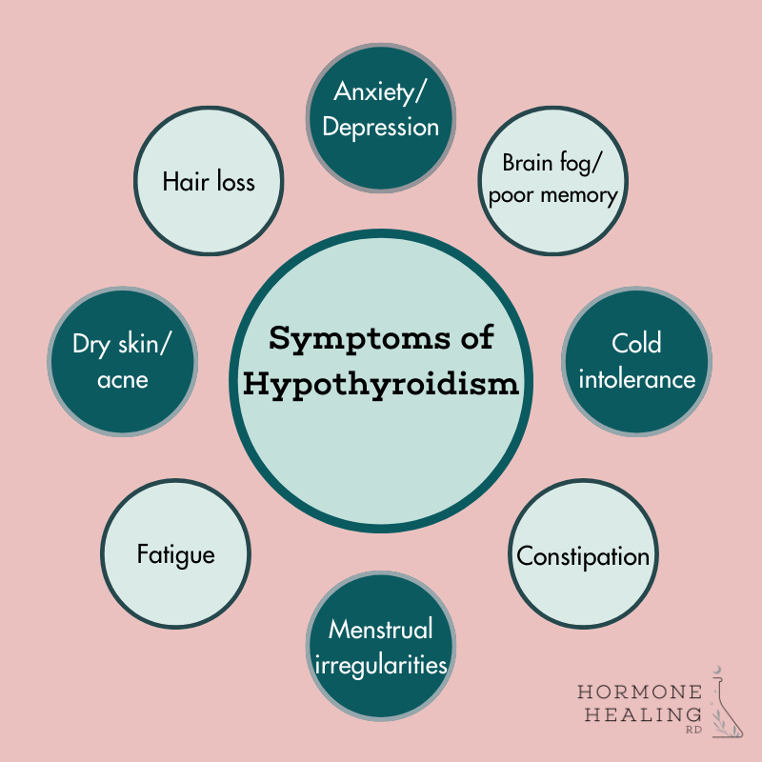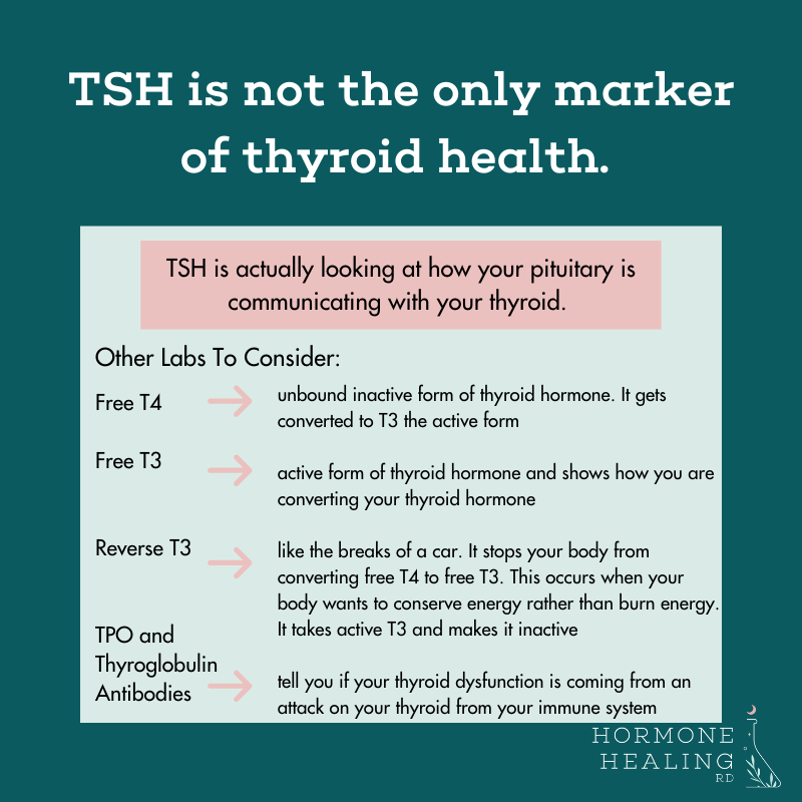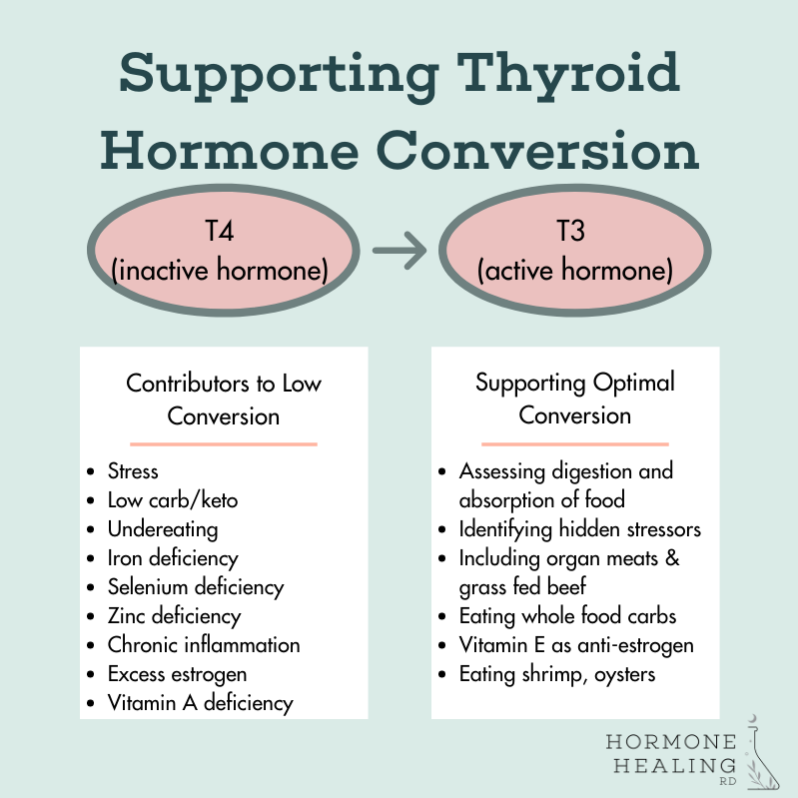The topic of thyroid health has generated an overwhelming number of questions. You don’t need to be diagnosed with hypothyroid to suffer from thyroid issues. I’ve discovered subclinical thyroid dysfunction in myself and many of my clients, impairing their ability to heal fully. In response to the questions I’ve received, I have put together a 3-part series on thyroid-related health. To kick off Part-1 of the series, I want to start by first covering what the thyroid is, how it works, and why you should care.

How does the thyroid work?
Your thyroid powers every cell in your body. It sets the pace for your body to function and to operate. Like a car engine, it produces the needed amount of energy to move at whatever speed you want. Your thyroid gland produces enough thyroid hormones that prompt your cells to function at a specific metabolic rate.
Just as a car needs fuel, your thyroid needs “fuel” to make these hormones. The “fuel” is a combination of vitamins, minerals, glucose, and amino acids. Vitamins A, C, and B are essential for proper thyroid function. We also need glucose to convert T4 (inactive thyroid hormone) to T3 (active thyroid hormone). Minerals such as iodine, copper, zinc, magnesium, and iron also fuel the thyroid gland and conversion process.
Cars have accelerators that produce energy and control the speed. Our bodies also have an “accelerator” that controls how fast it goes. Our “accelerator” is the pituitary or master gland. It is located at the base of your brain and regulates your thyroid function and other glands and parts of the endocrine (hormone) system. The pituitary and thyroid glands work together to put hormones into the blood. These hormones are then carried to different organs to allow them to function correctly. There is a thyroid receptor on every cell in your body!
How do thyroid hormones function in the body?
What does hypothyroidism look like?

I tried to choose the symptoms that I see most often in the image above, but here are other common symptoms:
Just because you have a lot of these symptoms doesn’t necessarily mean you have a thyroid issue, but it’s 100% worth looking into. The biggest problem I see is that there is thyroid dysfunction, but your thyroid levels are considered “normal.”
A few thoughts on this:
How to de-code thyroid lab values?
As mentioned above, TSH isn’t the only marker for thyroid health. I can’t tell you how many times I’ve asked a client if they’ve had their thyroid tested, and they come back with “yes, it was normal.” I then proceed to ask about the actual results, and most don’t even have them. Their doctor called to tell them their TSH was normal, and that was that. The problem with this is that understanding how your thyroid is functioning is so much more than TSH. TSH is telling you how much your pituitary is talking to your thyroid and demanding that it make more hormones.

If you suspect thyroid dysfunction, I recommend getting the following tested:
This gives you a much more complete picture of your thyroid function and where you may need support. I talk more about these and the optimal levels for each marker in my Feminine Periodical newsletter.
How can you support thyroid hormone conversion?
When we think of thyroid testing, we often think of thyroid-stimulating hormone (TSH), but as mentioned above, that’s just one marker of thyroid health. One of my favorite thyroid markers to loot at is free T3. Why? Because it shows you how your thyroid hormone conversion is.
Free T4 is the inactive form of thyroid hormone, and T3 is the active form. Our bodies naturally convert free T4 to free T3. When we have a poor conversion of free T4 to free T3, it can lead to hypothyroid symptoms. Free T4 is what is in thyroid medication, like levothyroxine, so whether you are taking medication or suspect a thyroid issue, it’s essential to know what your free T3 levels are. That is why some women taking that type of thyroid medication still don’t feel like themselves and often do better on a combined medication or thyroid gland. They need that free T3 (or they are on the wrong dosage)!
Many things can lead to poor conversion–I often see nutrient deficiencies as a big one. Still, before you start supplements with zinc or selenium, I recommend getting your levels tested. Why? Because minerals are complex. They need to be in the right balance, or they can lead to imbalances in other minerals. I use an HTMA test to evaluate minerals with my clients. It’s especially great for those who struggle with thyroid dysfunction, hormone imbalance, post-birth control, and more!

Having thyroid dysfunction isn’t a life sentence. Just like other hormone imbalances, you can support your body and support thyroid function. It’s all about getting to the root of what’s contributing to the dysfunction. This is what I do for the women I work with. To learn more about thyroid health, be sure to check back for parts -2 & -3 of this series.
Photo by Kate Hliznitsova on Unsplash
